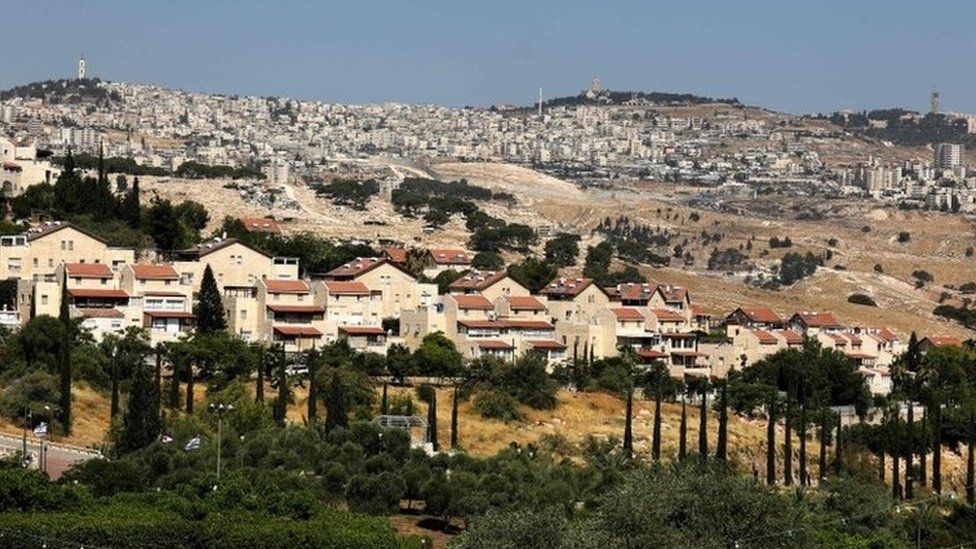Israel's ex-UK ambassador Mark Regev warns of 'two-state illusion'
- Published

Israel's former ambassador to the UK has warned against basing Middle East peace plans on a "two-state illusion".
Mark Regev told the BBC's Political Thinking with Nick Robinson podcast that "a real solution has to take into account the realities on the ground".
Earlier this week, UK Prime Minister Boris Johnson urged Israel not to go ahead with the annexation of part of the occupied West Bank.
Israel's government is expected to announce its plans soon.
In line with US President Donald Trump's Vision for Peace - a plan for ending the decades-old Israeli-Palestinian conflict - Prime Minister Benjamin Netanyahu wants to apply Israeli sovereignty to Jewish settlements and the Jordan Valley.
But the Palestinians want the West Bank to be part of a future Palestinian state and have rejected the Israeli proposals as a death blow to their hopes for self-determination.
The United Nations, the European Union and Arab countries have also called on Israel to scrap its plans, arguing they would violate international law and harm the prospect of a two-state solution - which involves establishing an independent Palestinian state alongside Israel.
But Mr Regev, who is expected to take up a role advising the Mr Netanyahu, told Nick Robinson: "Any peace has to be based on reality. You can have a two-state illusion. It might look nice on a piece of paper but it will never be implemented.
"A real solution has to take into account the realities on the ground and, first and foremost, you have to build peace on security because we know that peace that can't be defended won't endure. It can't survive."
The West Bank has been occupied by Israel since the 1967 Middle East war, but years of difficult on-off talks between Israel and the Palestinians - both of whom assert rights there - have left its final status unresolved.
Mr Regev, ambassador to the UK from 2015 until June this year, said: "If a future Palestinian state's going to be just another failed Middle Eastern state, if it's going to look like Iraq or Syria or Yemen or Libya - which unfortunately there are signs that is going to be the case - how is that good for peace, how is that good for Israel?
"More importantly, how is that going to be good for the Palestinians? In other words, when people say a Palestinian state is the solution, I think it's important to put a number of qualifications.
"Is a Palestinian state that is peaceful, democratic and one that wants to live with Israel side-by-side or is it going to be a superior platform to continue the struggle against Israel? These are the questions that have to be asked."
Writing in the Israeli newspaper Yedioth Ahronoth on Wednesday, Mr Johnson described himself as "a passionate defender of Israel" but warned that annexation would represent a violation of international law.
"It would also be a gift to those who want to perpetuate the old stories about Israel."
Some 430,000 Jews live in over 130 settlements (and scores of smaller "outposts") built since Israel occupied the West Bank in 1967.
The settlements are widely considered illegal under international law, though Israel - and the US under the Trump administration - denies this.